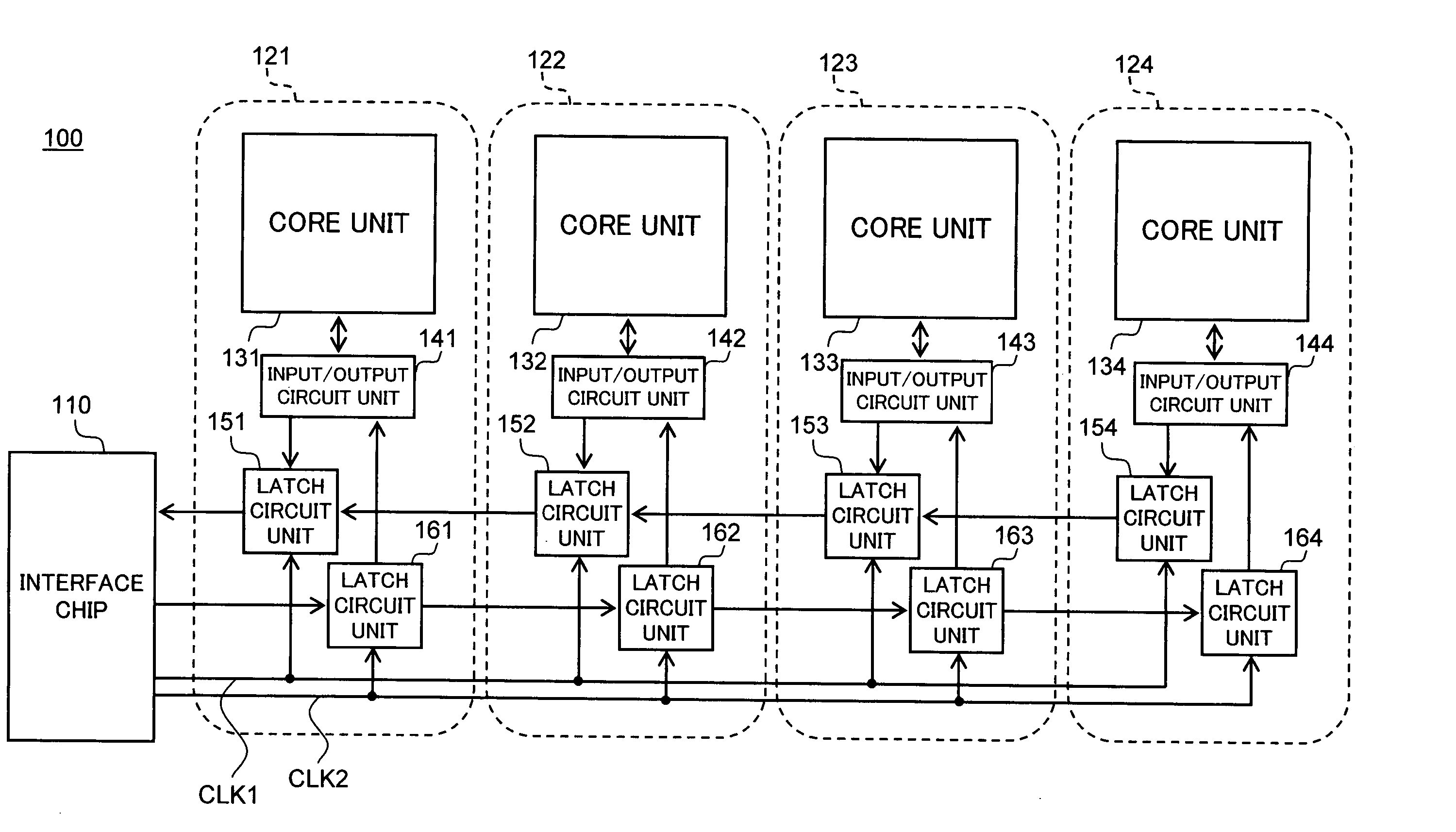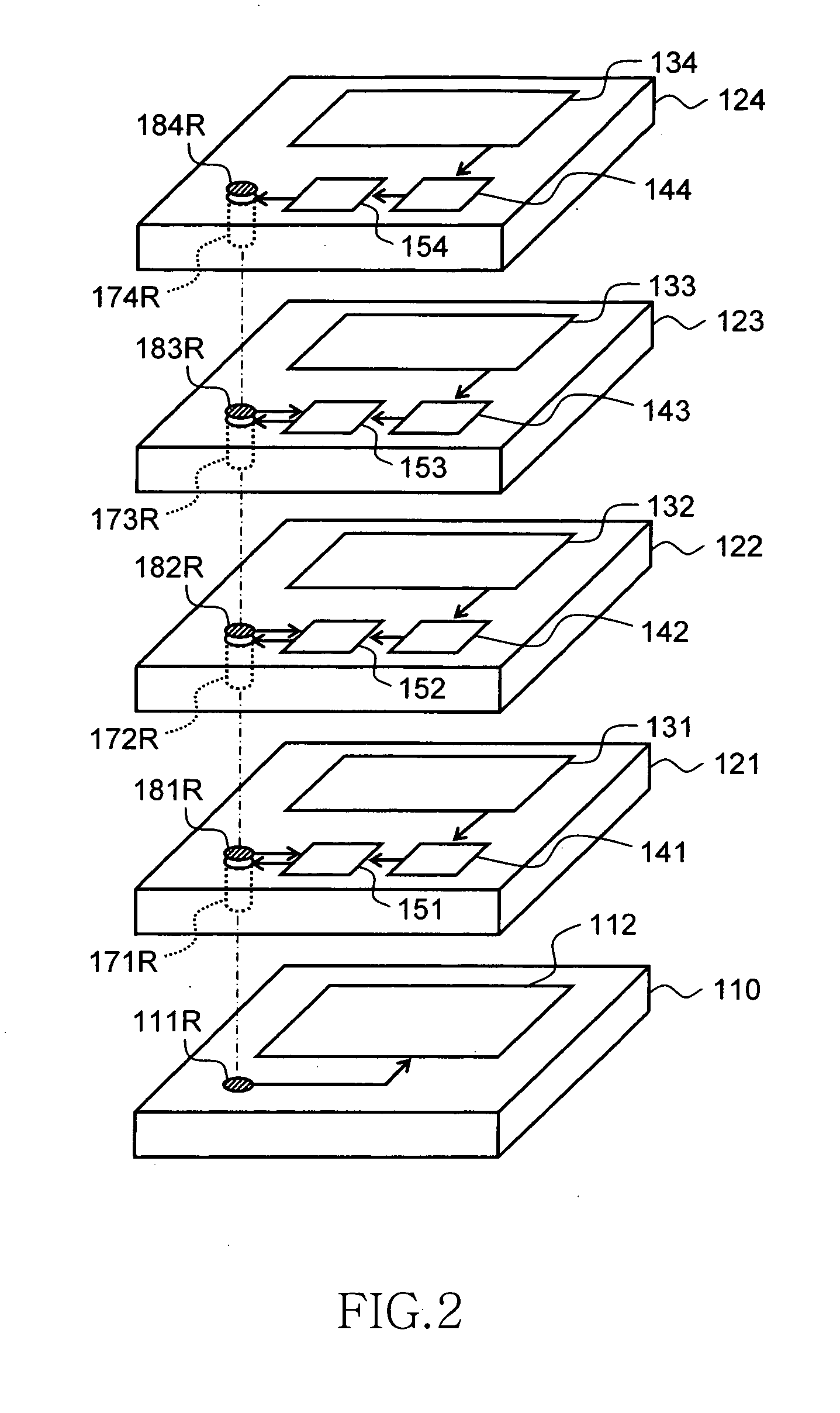Semiconductor storage device
- Summary
- Abstract
- Description
- Claims
- Application Information
AI Technical Summary
Benefits of technology
Problems solved by technology
Method used
Image
Examples
Embodiment Construction
[0037] Preferred embodiments of the present invention will now be explained in detail with reference to the drawings.
[0038]FIG. 1 is a schematic block diagram showing the circuit structure of the semiconductor storage device 100 according to a first preferred embodiment of the present invention.
[0039] As shown in FIG. 1, the semiconductor storage device 100 according to the present embodiment includes one interface chip 110 and four core chips 121 to 124. As described hereinafter, the interface chip 110 and the core chips 121 to 124 are layered together.
[0040] The four core chips 121 to 124 are provided with core units 131 to 134 in which memory cells are formed, input / output circuit units 141 to 144, first latch circuit units 151 to 154, and second latch circuit units 161 to 164, respectively. The first latch circuit units 151 to 154 are circuits for temporarily storing the data outputted by the core units 131 to 134, and the second latch circuit units 161 to 164 are circuits fo...
PUM
 Login to View More
Login to View More Abstract
Description
Claims
Application Information
 Login to View More
Login to View More - R&D
- Intellectual Property
- Life Sciences
- Materials
- Tech Scout
- Unparalleled Data Quality
- Higher Quality Content
- 60% Fewer Hallucinations
Browse by: Latest US Patents, China's latest patents, Technical Efficacy Thesaurus, Application Domain, Technology Topic, Popular Technical Reports.
© 2025 PatSnap. All rights reserved.Legal|Privacy policy|Modern Slavery Act Transparency Statement|Sitemap|About US| Contact US: help@patsnap.com



